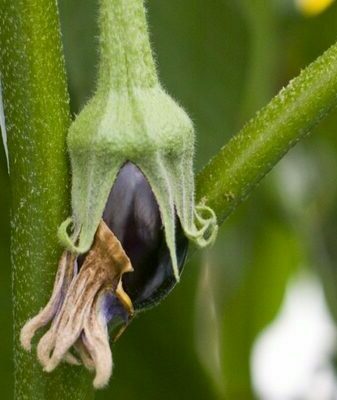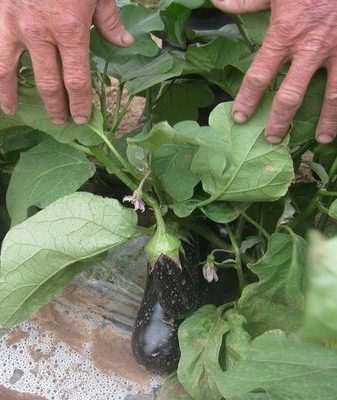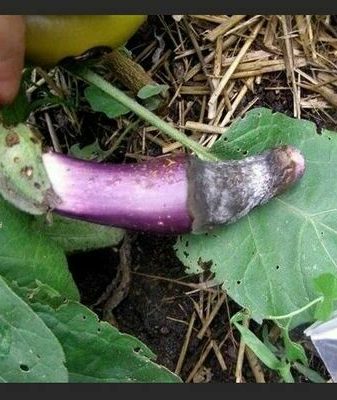Eggplant Vera
Content:
Of course, you can't underestimate all the benefits of natural vegetables. They contain a large amount of useful vitamins and minerals that can benefit anyone. Eggplant contains carbohydrates, proteins, glucose, fiber, starch and other elements. Eating eggplant often can help strengthen your heart muscle, which can help prevent a heart attack. The variety described in the article, Vera eggplant, is surprisingly suitable for pickling for the winter.
Eggplant Vera: description and characteristics of the variety
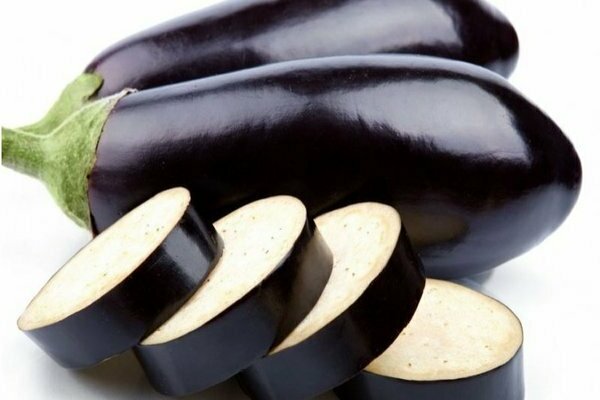
Eggplant Vera: photo of the variety
If you do not like to wait a long time for the appearance of fruits, then the Vera eggplant is ideal for you for the reason that it belongs to the early ripening varieties. The bushes are quite compact, the height of the bushes reaches 75 cm, the leaves are medium in size.
The leaves are green in color, but with a purple tint. The bushes do not contain thorns on themselves, even if they are, they are located very rarely. Many people choose Vera among other varieties of eggplants due to the beautiful, pear-shaped fruit.
You can find many reviews about this among inveterate summer residents.
Vera eggplants are distinguished by their thin skin, which is purple in color. The fruits have a delicate flesh, white color, no bitterness. Ripe fruits can reach 180 g. In special cases, fruits can weigh 300 g.
The Vera eggplant variety may not have a rich harvest. From 1 sq. a meter of eggplant beds can be harvested up to 1.5 kg of crop. Well, if you try hard, you can get the yield of Vera's eggplant as much as 3.5 kg.
Vera eggplants: distinctive features
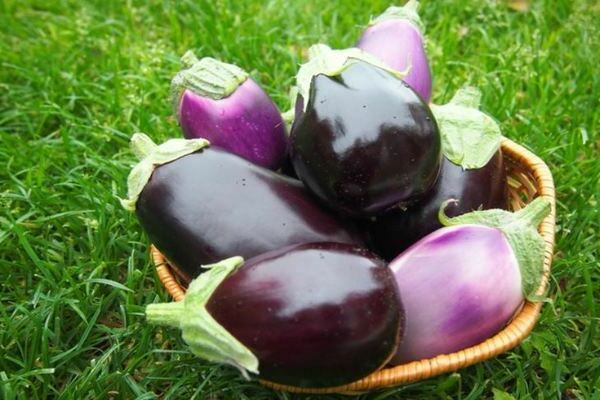
Eggplant Vera: photo of the variety
Among the features that distinguish the Vera eggplant variety from others is that eggplants can be planted both in open beds and using film. If you want to get a big harvest, then summer residents are advised to choose the first method.
It takes a little time for the eggplants to ripen well. Most often, this period is up to 118 days, and the variety has a fairly stable yield.
Eggplant Vera: planting and care, photo of the plant
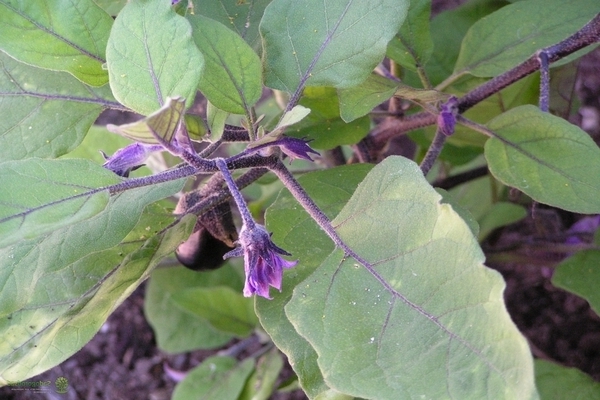
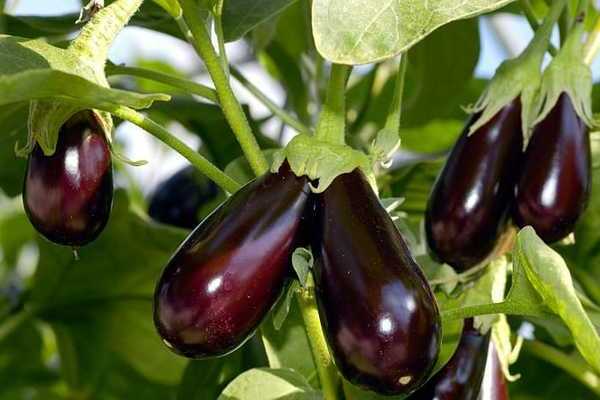
Eggplant Vera: photo of the variety
It is possible to plant Vera's eggplant seeds already from February, but many summer residents advise to postpone this period until May. Then the danger of the return of frosts will already pass. As we said earlier, it is best to practice planting eggplant in open beds.
When you plant the seeds, they need to be slightly deepened into the ground, up to about 20 mm. Then you need to sprinkle peat or sand on top. It is best to cover the eggplant seeds with polyethylene before the first shoots appear.
Most often this happens 20 days after the first planting of seeds. Summer residents are advised to adhere to a specific planting scheme. So that during growth and development, eggplants cannot interfere with each other.
The optimal distance between rows is up to 65 cm. Try to keep a distance of up to 35 cm between the bushes so that the eggplants are not cramped. Try to adhere to the rule that 1 sq. meter is recommended to plant no more than 3 bushes.
It is also important to observe the temperature regime. The optimal mark is + 22 ... + 24 degrees. In addition to timely and proper watering, eggplants require feeding in the form of a complex mineral fertilizer.
Fertilization
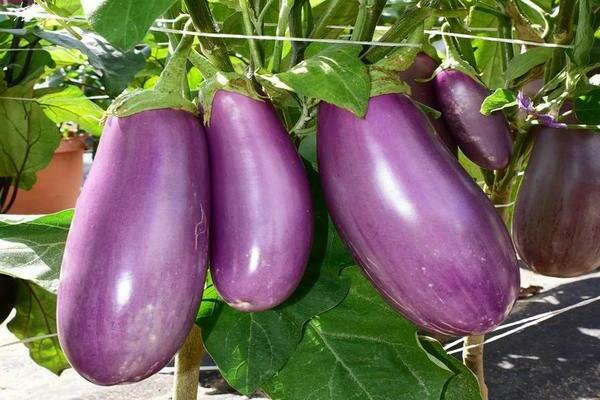
Eggplant Vera: photo of the variety
Like any living organism, eggplant also needs additional nutrition.A lack of certain nutrients can negatively affect the quality and quantity of the crop.
Many summer residents are not entirely responsible for this issue. Either they feed the plant a little, or they refuse to feed it altogether.
But even in feeding you need to know when to stop. The deficiency of any element will affect, but the fact that the fruits and harvest may not change for the better. If, on the contrary, there is too much of a nutrient, then the eggplant bush may be large and spreading, but not contain fruits.
If you apply a lot of fertilizer, harmful nitrates can build up in the eggplant. And nobody will benefit from this. Therefore, you need to look for a middle ground.
Most often, those summer residents who use top dressing claim that it is necessary to apply fertilizers up to 5 times per season. But if there is an urgent need, then more can be done.
Now let's take a closer look at what can happen to eggplants if they lack a particular nutrient.
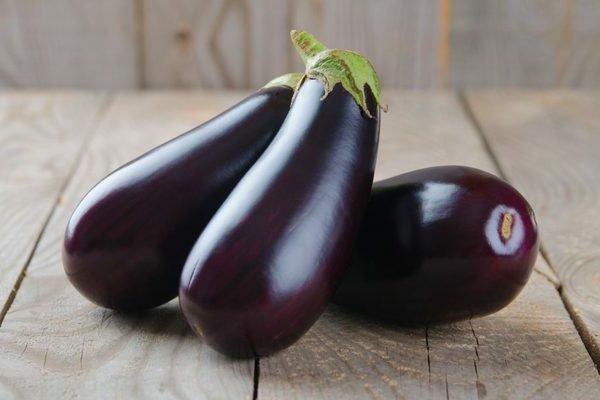
Eggplant Vera: photo of the variety
- Nitrogen. If you notice that the eggplant has less leaves, then this will be a nitrogen deficiency. They turn pale green and begin to crumble over time. You will be able to get yields, but Vera's eggplants will be small. To remedy the situation, you can apply ammonium nitrate or bird droppings.
- Phosphorus necessary for crops so that the root systems can develop correctly. If you notice that the leaves have begun to acquire a violet-blue color, then this may indicate a lack of phosphorus. But before applying phosphorus fertilizer, you need to make sure that the air temperature does not exceed +15 degrees, otherwise the phosphorus will not be able to be absorbed.
- a lack of potassium can occur in cases where you took peat or sandy rocks for growing eggplant. This is especially noticeable in dry climates. A sign of a lack of this element may be a change in the color of the leaves to yellow, and the edges will also begin to dry out. You will notice stains on the eggplants. If you apply fertilizer in the form of ash on time, it will help to avoid this negative situation.
- If you grow the Vera eggplant variety in soil that has an increased level of acidity, then without such an element as calcium, you will not be able to get a healthy and rich harvest. With its lack, the growth of the entire plant as a whole slows down. On the leaves, you can see white stripes on the contours. To correct the situation, you can apply fertilizer based on calcium nitrate. Or apply calcium chloride for spraying.
- Flaw bora can manifest itself in the form of shedding of flowers, which entails a reduction in the number of fruits. Boric acid works well to remedy the situation.
- Deficit magnesium manifests itself in colorless veins on the leaves. You can also use ash to remedy this situation.
Now you were able to learn some of the subtleties associated with growing Vera's eggplant. This is a very good and healthy variety indeed. A little care and maintenance, and you will notice what a rich harvest Vera eggplant can give you.


